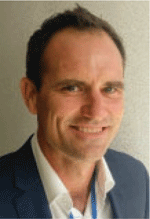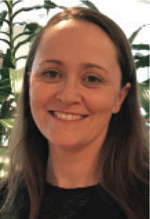Ahead of the game: working with local communities in frontier resource basins
Warwick Squire A B and Julie-Anne Braithwaite AA Statewide Operations, Mineral and Energy Resources, Department of Natural Resource, Mines and Energy, 1 William Street, Brisbane, Qld 4000, Australia.
B Corresponding author. Email: warwick.squire@dnrme.qld.gov.au
The APPEA Journal 59(2) 728-730 https://doi.org/10.1071/AJ18097
Accepted: 12 March 2019 Published: 17 June 2019
Abstract
From frontier gas basins in North West Queensland to potential unconventional gas reserves in the far south-west, several areas in Queensland have potential for new or expanded resource activity over the coming decade. Lessons of the past have highlighted the importance of early engagement, by industry and government, in building and maintaining constructive relationships with local communities and achieving successful coexistence. The way in which local communities are introduced to new resource activity, and their first impressions, contribute to future attitudes and expectations. In some cases, the Department of Natural Resources, Mines and Energy (DNRME) is taking a lead on early activities to facilitate resource exploration and development, such as pre-competitive exploration and release of tender areas for potential exploration. DNRME’s approach for engaging with resource communities involves developing robust relationships with local stakeholders, namely local government, landholders, Traditional Owners and local organisations, and a deep understanding of their interests and the local context. Second, it focuses on providing information to local communities about resource activity and ensuring that they have a channel for raising questions and concerns.
Keywords: coexistence, community engagement, early engagement, petroleum and gas, social licence to operate, unconventional gas.

Warwick Squire is currently acting Executive Director, Statewide Operations and oversees teams, focused on operational policy and regulatory support, resource community engagement and compliance and business systems. Warwick has worked in a number State Government agencies and local governments in Queensland and the UK, with a strong focus on policy, planning and natural resource management. For the past decade, Warwick has worked extensively in the area of co-existence of the resource and agricultural sectors, playing a fundamental role in the policy and legislative reform of the Land Access framework and other key policy areas such as strategic cropping land. With this policy experience, Warwick is now playing a lead role operationalising these co-existence principles across Queensland. Warwick’s academic qualifications include a Bachelor of Environmental Science from Griffith University and Graduate Diploma of Urban and Regional Planning from Queensland University of Technology. |

Julie-Anne Braithwaite joined the Department of Natural Resources, Mines and Energy in July 2017 as Project Director, Strategic Engagement, working with stakeholders in basins and provinces with potential for new or increased exploration and resource development. For the majority of her career, Julie-Anne has worked for a global mining company in the areas of stakeholder engagement, environmental approvals, social performance and sustainable development. She has experience across a range of commodities and countries, in both mine site and corporate roles, and has also consulted for industry and government. Career highlights include a 2-year secondment to the International Council on Mining and Metals and membership of the World Business Council for Sustainable Development Young Managers Team. She has been a member of various committees, including those of the Queensland Resources Council, NSW Minerals Council, Global Reporting Initiative and Australian Coal Association Research Program. Julie-Anne’s academic qualifications include a Science degree with First Class Honours from the University of New South Wales and a Masters of Environmental Planning from Macquarie University. |
References
DNRM (2017) Queensland’s unconventional petroleum potential. Available at https://www.dnrm.qld.gov.au/ data/assets/pdf_file/0018/291330/unconventional-petroleum-potential- 2017.pdf [verified 18 December 2018].EY (2018) 10 business risks facing mining and metals. Available at https://www.ey.com/en_gl/mining-metals/10-business-risks-facing-mining-and-metals [verified 16 January 2019].
Hall, L. S., Buchanan, S., Totterdell, J. M., Lai, É. C. S., Langford, R. P., Sundaram, B., Ransley, T. R., Glenn, K. C., Heugh, A., Inskeep, C., Zhu, R., Lech, M., Skeers, N., and Stewart, G. (2018) Rapid regional prioritisation for tight and shale gas potential of eastern and northern Australian basins. Geological and Bioregional Assessments Program: Stage 1. Prepared by Geoscience Australia for the Department of the Environment and Energy, Australia.


